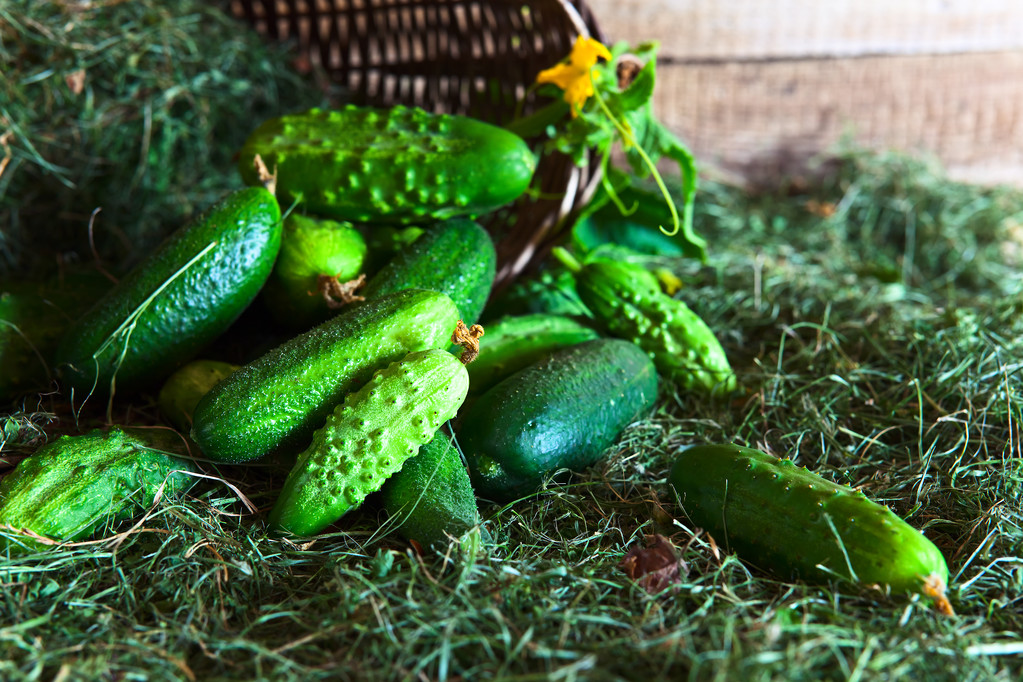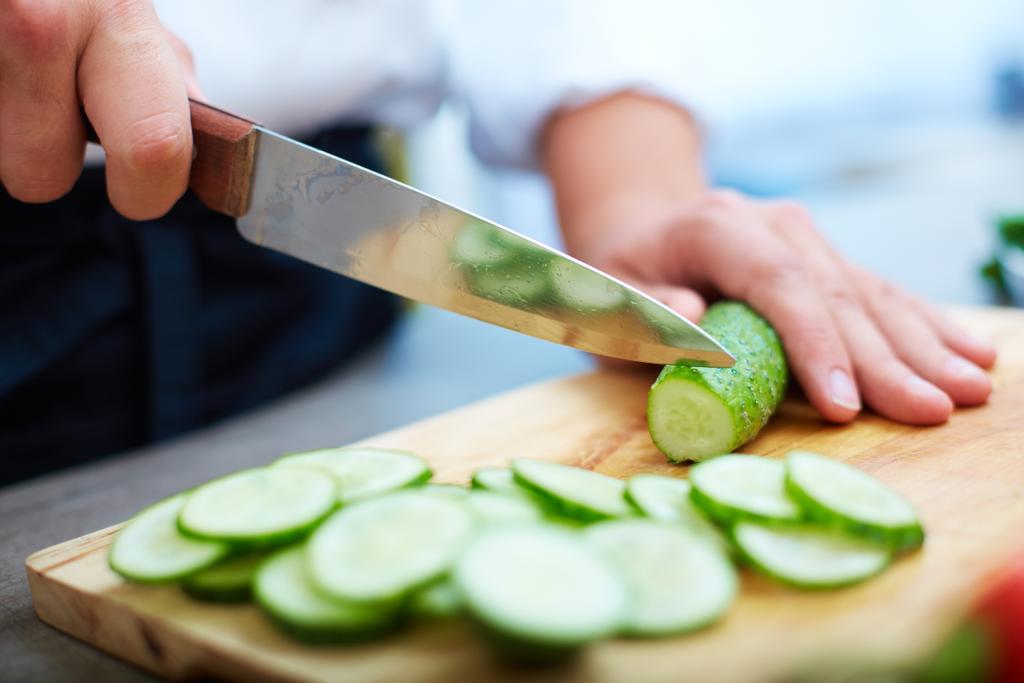If you want to store cucumbers, you should consider a few things. In this article you will learn what you need to know to keep cucumbers fresh for a long time.
Cucumbers consist of 97 percent water and are therefore relatively sensitive. If you store them incorrectly, they are prone to staining and mildew. In this article you will get many tips on how to store cucumbers properly.
Since the micronutrients are concentrated in and under the skin, you should eat cucumbers unpeeled. Therefore, use cucumbers of organic quality: they are free of chemical-synthetic pesticides.
In Germany, cucumbers are in season between June and September. During this time they are available from regional cultivation. Regional products have shorter transport routes and therefore have a smaller CO2 footprint. You can get unpackaged organic cucumbers at farmer’s markets, from direct sellers in your area or in organic boxes. You can find more information about the season of different vegetables in the Utopia Seasonal Calendar.
Storing cucumbers: You should pay attention to this

It is best to buy cucumbers unpackaged. The plastic wrap is meant to protect the cucumber. However, sometimes the cucumber starts to mold faster due to the condensation under the foil because it is packed airtight. However, opinions differ on this. You can also read online that cucumbers wrapped in plastic wrap last longer. From the point of view of environmental protection, however, unpackaged cucumbers are preferable to those sealed in plastic. More about this here: What is more sustainable: organic or unpackaged?
How to store cucumbers correctly:
Store the cucumber in a dark and cool place in the pantry or basement. Cucumbers do well at temperatures between ten and 13 degrees Celsius. Properly stored cucumbers can be kept for up to three weeks.
If you don’t have a pantry or basement, store the cucumber in the crisper of your refrigerator. This is better than storing the cucumber at room temperature. Cucumbers only last four to five days in the fridge.
Stored at room temperature, you should use cucumbers within a day or two.
Avoid storing cucumbers near apples or tomatoes. The cucumbers ripen faster due to the escaping ethylene.
Because of the high water content, you should not freeze cucumbers. The cold destroys the cell structure and the cucumber becomes mushy.
Storing Cucumbers: Store chopped cucumbers

Once you cut the cucumber, you should use it as soon as possible.
Place the sliced cucumber in a sealable container. You can also store small leftover cucumbers in a jar.
Store the container in the refrigerator and use the cucumber within a day or two.
Before the next meal, remove the dried part of the cucumber and wash it thoroughly again.






